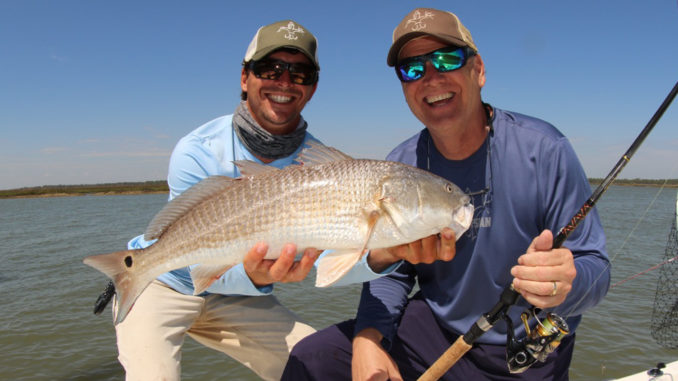
When accuracy is foremost, they can’t be beat
For serious inshore anglers across the Carolinas, spinning gear is king. Search a dozen boats pulling into any coastal ramp in either state, and you’d be hard pressed to find a baitcasting outfit. But that’s not true in other parts of the country.
In many parts of Louisiana and Texas, for example, it’s just the opposite. Inshore anglers prefer their baitcasting gear and are likely to look sidewise at anyone who shows up with spinning gear to toss lures at redfish, sea trout and flounder.
Strangely, many inshore anglers in the Carolinas wouldn’t consider using spinning gear when they visit a freshwater lake to do some bass fishing. So what gives?
For many anglers, it’s all a matter of simplicity. Spinning reels, while more complex in the way they work, are simply easier for most anglers to master, especially when using light lures or popping-cork rigs that require casting with a lot of line dangling from the end of the rod.
Casting distance is also a factor. A few minutes with a spinning reel will make any angler competent at making longer casts than most can with a baitcaster, Inshore anglers also deal with a lot of wind, and casting into the wind can result in the dreaded “bird’s nest” for even experienced anglers with baitcasters, but those same winds have very little impact on spinning gear.
Well that explains it, and proves that spinning gear is the best equipment for the job, right? Not exactly. For all its shortcomings, fishing with a baitcaster has at least one thing going for it that spinning gear can’t match, no matter whose hands are operating it: accuracy.
When you need to thread the needle and put a soft-plastic shrimp in between a dock piling and a mass of spartina grass or a downed tree with limbs protruding from the surface, a baitcaster is the right tool for the job. It’s not even a close competition.
And while making a cast with a spinning reel is easier, it is also more time consuming and can’t be done without both hands playing a role. This isn’t a big deal in many cases, but if you’re sight-casting, or if the prime light of sunrise or dusk is dwindling, the quicker you can cast, the more casts you can make.
With a spinning reel, every cast requires opening the bail with one hand, fingering the line with the index finger of the other hand, making a cast, closing the bail, then engaging the reel. Making a cast with a baitcasting reel only requires depressing the thumb bar or button with the thumb of the casting hand, making the cast, then engaging the reel.
Bryan Williams of Wilmington, N.C., is one angler who sees the virtues of baitcasting reels, and he believes the main reason it’s not more widely accepted in this region boils down to what anglers grew up using.
As a regional representative for Shimano, Williams said nothing is a tougher sell than baitcasting gear for inshore angling in the Carolinas, even though his company has several reels that are specifically designed to meet the needs of inshore anglers.
“In this region, inshore anglers just grew up using spinning gear. Even those who grew up fishing freshwater for bass with baitcasters have traditionally used spinning reels exclusively when fishing inshore,” he said.
“It’s always difficult to break that mentality, when someone’s been doing something long enough, and they feel as though it works well enough, they just don’t see a reason to change it. It’s even tougher if that person has only used cheap baitcasting reels in the past. But there are situations, especially when casting accuracy is a big deal, that a baitcasting reel is by far the best option.
“Sometimes when fish are finicky, you really have to be right on the money with your casts, especially when you’ve got surface debris, tree limbs, or other obstacles to avoid. You can cast far and get close with spinning gear, but when accuracy is really important, baitcasters are really the only option,” he said.
Williams doesn’t propose inshore anglers switch exclusively to baitcasting reels; far from it.
“Just adding one quality baitcasting outfit to your arsenal will have you prepared for every situation. You’ll never have that feeling of, ‘If only I had a baitcaster with me’ whenever the right circumstance comes along. You’ll be better prepared, and you’ll catch more fish,” he said.

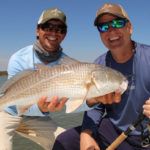
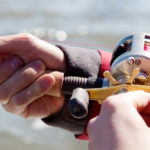

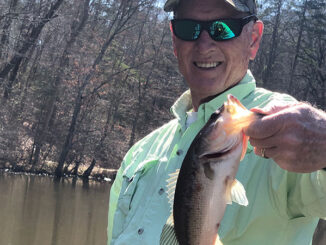
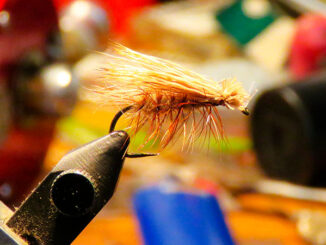

Be the first to comment